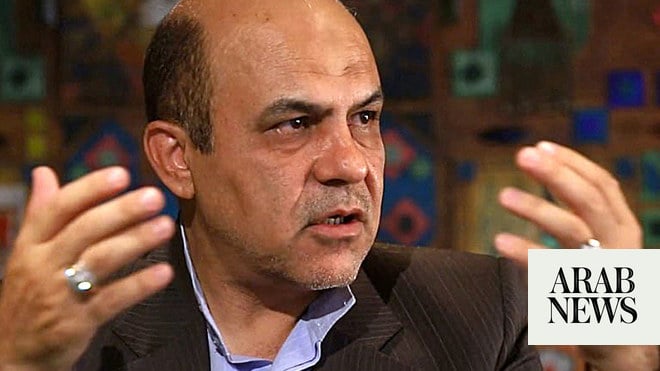
Kaveh Madani: “Local decision-makers are liable for avoidable failures of environmental management”
In July, Iran was convulsed by protests in Arab-majority Khuzestan province sparked by lack of clean water
LONDON: The former deputy vice-president of Iran criticized Tehran over its mismanagement of natural resources in the country’s Khuzestan province, blaming “excessive manipulation of the natural environment” for the country’s water bankruptcy.
In an op-ed published in The Guardian newspaper, Kaveh Madani said attempts by authorities to shift the blame toward climate change as the “sole cause of terrible (water) shortages let those in authority off the hook.”
Late last month, Iran’s Khuzestan province became the focal point for weeks of violent unrest spurred by a drought that left people without clean and safe drinking water. Those protests quickly spread across the country, including to the capital Tehran, morphing into anti-regime demonstrations.
Madani explained that water-rich Khuzestan should never have been subject to drought, but the construction of huge dams and the transfer of the province’s water to other parts of the country have left it in a state of water bankruptcy.
“Once you drain your checking account (surface water) and exhaust your savings account (groundwater), you are left with a lot of creditors (water rights-holders) whose demands cannot be satisfied,” Madani said. “Then you are water bankrupt and the dissatisfaction of the claimants can trigger major conflicts.”
He also said that this may be related to the institutional racism in Iran that excludes ethnic Ahwazi Arabs from the majority Persian state.
“The Khuzestan protests also have an important social justice element. Ethnic Arab populations are expressing their serious frustration with what they consider a ‘systematic’ or ‘intentional’ discrimination that has resulted in underdevelopment in their rich province,” Madani said.
“Khuzestanis are also questioning why ‘their’ water must be transferred to other regions while they are suffering from thirst.”
Madani warned about the potential consequences of water mismanagement for years, but rather than being listened to he was spied upon and detained.
“What Khuzestan and the rest of Iran are experiencing today is not unexpected,” Madani said. “Lots of experts, including me, have been warning about the national security risks of this situation for years.”
While he served in his role as deputy vice president, Madani was regularly detained by the Islamic Revolutionary Guard Corps (IRGC) and after he fled the country, he said he felt “lucky” not to have been imprisoned for a longer stretch.
Now, he is trying to prevent the regime from deflecting responsibility for its actions by invoking global climate change.
Well-intentioned environmental campaigners are correct about the devastating consequences of climate change, Madani said.
But the way that Iran has managed its natural resources means that “even if climate change stopped and Iran cut its carbon emissions by 100 percent right now, its water bankruptcy and many other environmental problems would not be solved immediately.”
He concluded: “We must remember that local decision-makers are liable for avoidable failures of environmental management that result in the degradation and suffering we are now seeing in Iran.”










